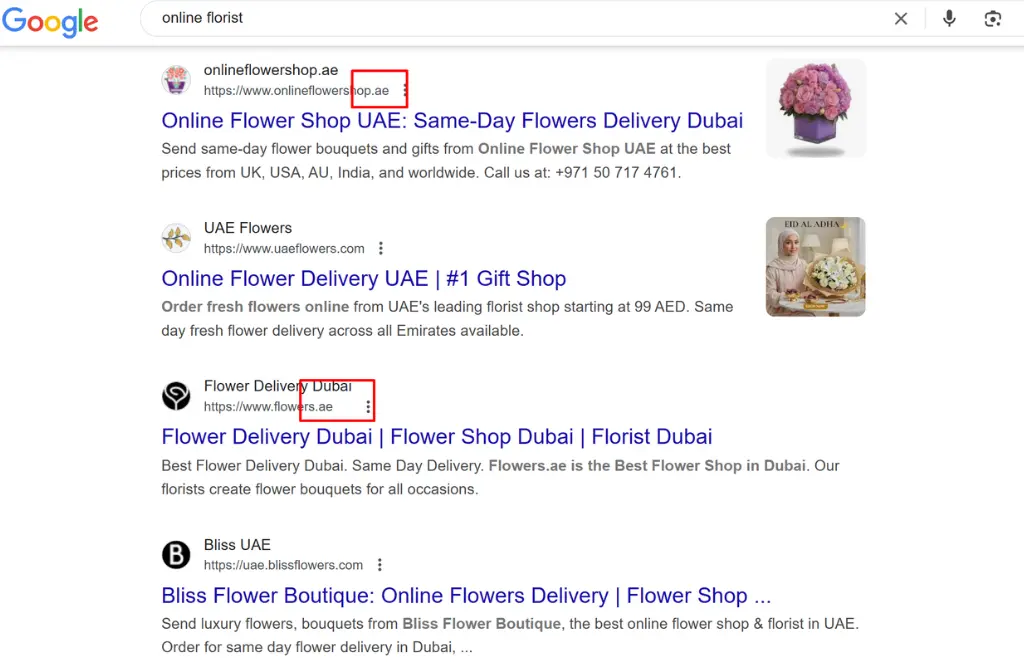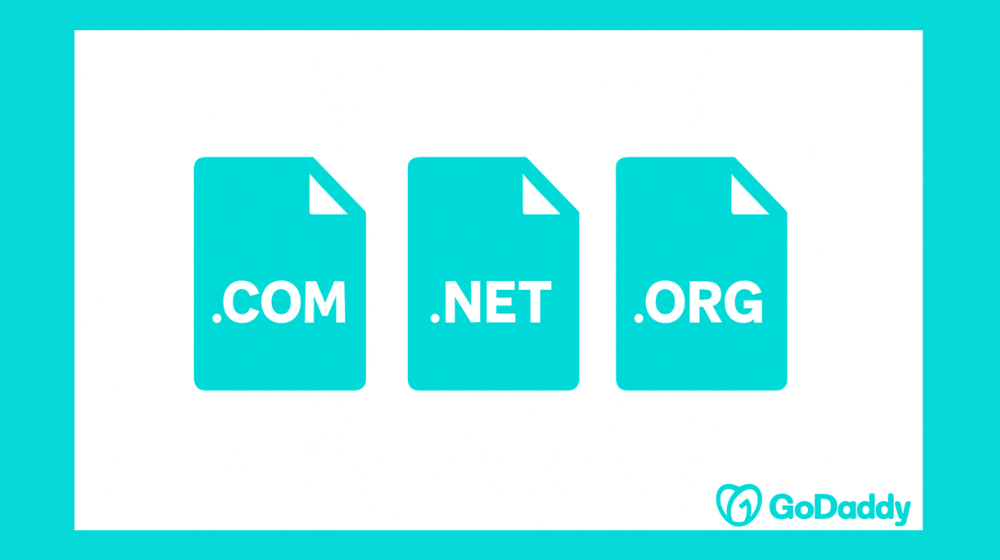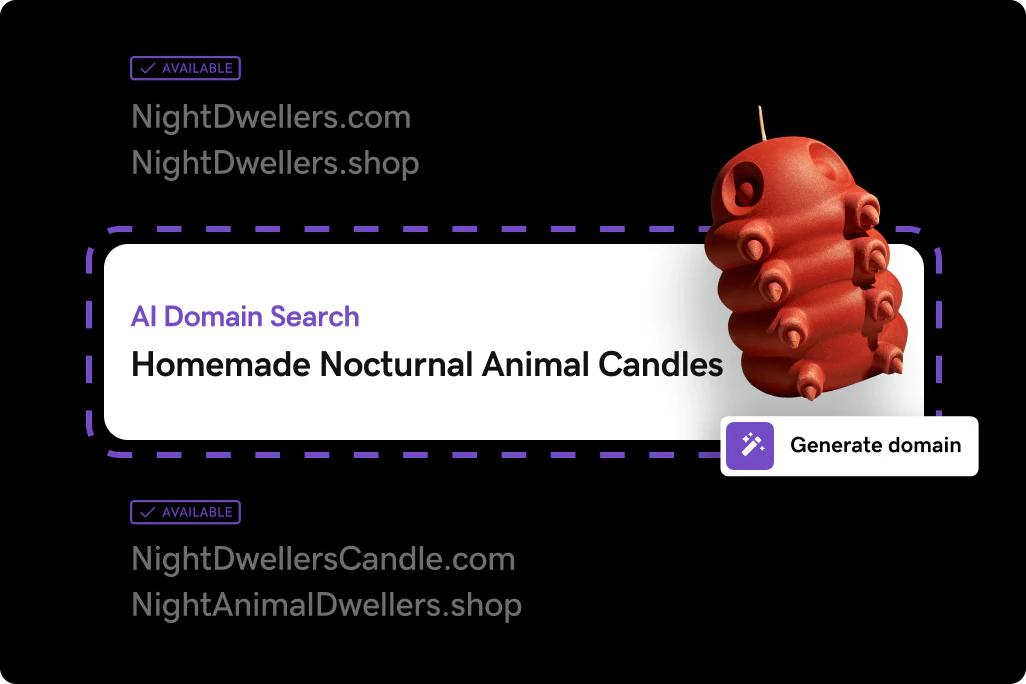Let’s face it. Choosing a domain extension isn’t exactly the sexiest part of building a website. But oh boy, does it matter.
That little ending, be it .com, .net, .org, can shape how people see your brand before they even click. It's like the accent your URL wears: slick and commercial, tech-savvy and practical, or purpose-driven with a big ol’ heart.
After years of helping clients untangle SEO knots, build better hosting setups, and launch everything from slick e-commerce stores to ground up campaigns, I can tell you this: your TLD (that’s “top-level domain” if you’re not into acronyms) speaks volumes.
It sets expectations, builds trust and sometimes nudges those all-important clicks in your favour.
In this guide, I’ll discuss:
- The differences between .com, .net, and .org
- What each one of these TLDs means
- How they affect SEO
- When to use them
- What to do if your dream domain is already taken.
If you're starting fresh, scaling up, or just trying to untangle the unfamiliar world of domains, you’re in the right place.
Let’s dig in.
What is a top-level domain extension (TLD)?
A top-level domain (TLD) extension is the suffix at the end of your domain name, the part that follows the final dot.
So in ‘amazon.com,’ for example, “.com” is the TLD.
Your TLD is a digital signal that shapes how your website is found, categorized and trusted online.
But behind that tiny snippet is a layered digital hierarchy, rooted in the Domain Name System (DNS), that helps organize how websites are located and categorized on the web.
You’ll find hundreds of TLDs out there. Some are generic, some country-specific, and others can be highly specialized.
Whether you’re running a global e-commerce store in Mumbai or launching a charity initiative from Bangalore, understanding what your TLD communicates is a subtle but vital part of building an effective online presence.
Why does choosing the right domain extension matter?
Choosing the right domain extension sets the tone for how your audience perceives your site, starting with the all-important factor of trust.
1. Trust
When people see a domain extension they recognize, their guard drops just a little. It’s a subtle but powerful psychological cue.
.com feels familiar, .org feels mission-driven, and .net suggests something tech-savvy or infrastructure-related.
2. Purpose
Each domain extension hints at a different underlying purpose, and searchers subconsciously pick up on that.
A .org suggests you’re here to help, not sell; a .com positions you as a business ready to serve; and a .net often conveys tech credentials.
When advising clients, I always ask: what’s the story your domain is telling before anyone even clicks?
3. Credibility
Credibility isn’t just about content or design. It begins with your domain name. While content builds trust over time, your TLD either supports or undercuts that effort from the outset.
I’ve seen NGOs gain instant legitimacy with a .org, while commercial ventures risk looking amateurish if they rely on offbeat TLDs that don’t match their industry norms.
4. SEO & discoverability
TLDs don’t directly impact rankings, but they can influence clicks, and clicks influence rankings. When a domain looks trustworthy, people are more likely to visit, link to, and share it.

Choosing a localised country code top-level domain (ccTLD) like .in can improve your visibility on Google’s SERPs.
Just take a look at the SERP for the keyword “online florist”. Two out of the top four ranking domains have the .ae ccTLD.
5. Availability
The truth is, many .coms are likely already taken, which can lead to frustration and compromises. But instead of forcing a long or awkward brand name, sometimes switching to a .net or .org can be a smart play.
I often help clients brainstorm alternatives that retain clarity and impact without diluting their brand, especially when launching in saturated niches.
What is a .com domain?
In domain name systems, a .com domain is a type of top-level domain, or TLD, which refers to everything that comes after the final dot in a web address.

So, in something like ‘example.com’, that ‘.com’ is your TLD. It originally stood for “commercial,” and while it was intended for businesses, it’s become the default go-to for nearly every kind of site. You’ll find others like .org or .net, but .com remains king.
What makes .com so sticky is its universal appeal.
Whether you’re a freelancer or running an e-commerce shop out of Delhi, a .com domain gives your site instant familiarity.
Having a .com domain feels like the online equivalent of prime real estate. It's easy to remember, respected globally, and versatile enough to work for nearly any industry or niche.
Key facts about .com domains
The .com extension has earned its reputation as the gold standard of domain names. People remember it more easily, which can translate into clicks, conversions, and long-term brand equity.
.com is a branding asset and digital real estate all in one. If you want clicks and long-term value, start with a .com
From an SEO perspective, .com domains tend to have the edge. It's not because Google favors them algorithmically, but because users do. It also helps that they’re short, snappy, and often easier to recall, especially on mobile where typing precision matters.
And because they’re in such high demand, a quality .com domain can even hold real financial value, much like digital property.
Advantages and disadvantages of .com
| Pros | Cons |
| Universally recognized and trusted | High demand means many names are taken |
| Strong branding and memorability | Often more expensive than other extensions |
| Perceived authority and credibility | Less niche-specific than alternatives |
| Better user trust and click-through rates | Can be hard to secure short names |
| Ideal for global audiences | Not ideal for mission-driven or nonprofit sites |
Use cases for .com domains
If you’re building a business or commercial brand, a .com domain should be at the top of your wish list.
I’ve used it for e-commerce clients, personal brands looking to establish authority in consulting, and even SEO-focused content sites that rely on high CTRs and return traffic. Sites like noon.com, careem.com, or even personal portfolios like janeadvises.com show just how broad the use cases are.
It’s also a smart play if you’re planning to flip or invest in domains, as many .coms might hold relatively higher resale value and are always in demand.
Why is .com so popular?
When it comes to a URL or web address, most people might only know .com. In fact, at the time of this article’s publication, 48% of global websites use a .com TLD.
It’s the default in everyone’s mind, and that kind of brand recall is pure gold online. That’s why I often tell clients, if you can get the .com for your brand, grab it. Otherwise, be ready to explain what your site is and why your audience should trust it, which is something a .com often does for you automatically.
What is a .NET domain?

The .net domain extension, short for “network,” was originally created for organizations focused on infrastructure such as ISPs, tech platforms and companies that connected or powered other services.
.net is a smart pick for tech brands and startups who want trust and function without compromise. Secure your .net domain now at GoDaddy.
It was meant to serve as a hub, a kind of digital umbrella under which smaller sites or services could operate. Over time, its meaning has stretched, and these days, it’s often used by startups, SaaS companies and anyone involved in tech or digital networking.
Advantages and disadvantages of using .net
| Pros | Cons |
| Well-established and respected | Often seen as second choice to .com |
| Widely available compared to .com | May confuse users who default to .com |
| Associated with tech and innovation | Slightly less intuitive for non-tech industries |
| More chances to get exact-match domains | Less memorable or brandable for mass audiences |
| Open for global use without restriction | Doesn’t signal purpose clearly like .org might |
Best use cases for .net domains
I usually recommend .net domains for tech-forward businesses, especially when their .com counterpart is taken or overpriced.
Web infrastructure companies, app developers, and cloud service providers tend to feel right at home with a .net. I’ve seen educational platforms like in the UAE like almentor.net use it effectively, especially when they’re trying to build trust without overpaying for a .com.
It's also a solid pick for community-based or networking platforms where the domain itself reflects what the company does.
Key facts about .net domains
What’s often overlooked about .net is its pedigree. It’s one of the original domain extensions, launched back in the early days of the internet.
The “network” association still holds weight, particularly in industries like software, hosting or telecommunications. It’s also open to anyone, not limited to nonprofits or specific geographies.
I often tell clients, especially those launching globally, that .net is a viable, respected option when .com is off the table.
Who should use a .net domain?
If you’re a tech founder or developer launching something with a functional, infrastructure-driven core, .net might be the perfect fit.
The same goes for anyone offering hosting, cloud services, or tools for online collaboration. I’ve worked with brands that didn’t want to settle for a long, awkward .com and found clarity and availability with a short, sleek .net.
It can also work well for bloggers and solo creators building authority in technical fields, where the .net gives off a smart, utility-first vibe without trying too hard.
What is a .org domain?

The .org domain extension was originally created with nonprofit organizations in mind, offering a digital space where mission-driven groups could present themselves professionally and foster trust online.
If your mission matters more than your margins, .org is your digital home. Claim your .org domain now at GoDaddy.
While it’s still closely associated with charities, foundations, and other nonprofit entities, it’s not restricted to them. Anyone can register a .org today.
What sets it apart is the sense of purpose it naturally conveys to visitors.
From what I’ve seen working with clients in different sectors, .org remains a go-to when your mission matters more than your margins.
If your goal is to build authority, show commitment to a cause, or engage with a community rather than sell a product, .org makes your intention immediately clear. And from an SEO standpoint, it signals trustworthiness, which helps build backlinks and online visibility over time.
Advantages and disadvantages of .org
| Pros | Cons |
| Instantly trusted and recognized | Often perceived as nonprofit-only |
| Ideal for mission-driven and educational sites | May not suit purely commercial or sales-driven goals |
| Open to all users worldwide | Can be harder to brand for profit-focused companies |
| Enhances credibility and authority | Less intuitive for product-based ventures |
| Strong global recognition | Misuse can confuse audiences expecting nonprofit content |
Key facts about .org domains
The .org domain extension has been around since 1985, making it one of the original pillars of the internet. Initially intended for non-commercial use, it quickly became the domain of choice for nonprofits, foundations, educational institutions, and community-driven initiatives.
It's now operated by the Public Interest Registry, and while it remains open to everyone, it still carries the public’s perception of integrity and service.
That’s something I always keep in mind when advising clients. If you’re aligning your brand with public good or transparency, .org can say that for you before a visitor reads a single word on your homepage.
What is .org used for?
You’ll often see .org domains on nonprofit websites, but their use goes beyond charity.
Educational platforms, advocacy groups, open-source software projects, and cultural institutions frequently lean on .org to underscore their purpose. Even for-profit entities with a strong social mission, like green energy startups or community banking platforms, can use .org effectively if their messaging is mission-first.
I’ve worked with some organizations promoting sustainability and education that gained early traction online precisely because their .org domain aligned with the public’s expectations.
Best use cases for .org domains
If your organization operates in a space where community trust, purpose-driven messaging, or public education are central, .org is a natural fit.
It’s particularly strong for nonprofits, NGOs, and grassroots campaigns, but I’ve also seen great results for open-source projects and knowledge-sharing platforms. Take examples like wikipedia.org or unicef.org—these domains are globally recognized not just for their names, but for what the extension itself implies.
.org isn’t just for nonprofits — it’s a trust signal for any mission-driven organization looking to build credibility and community impact, especially in sectors like civic tech and social enterprise.
In the UAE, I've seen civic tech projects and social entrepreneurship platforms use .org effectively to build early credibility in competitive spaces. One notable example is Tamakkan.org, an Abu Dhabi-based entrepreneurship organization founded in 2009.
Tamakkan offers guidance, seminars, and networking opportunities to small and medium-sized enterprises (SMEs), aiming to nurture entrepreneurship and promote best practices in the local economy.
Their .org domain reinforces their mission-driven approach and commitment to community development.
Which domain extension is best for SEO?
When it comes to SEO, many jump straight to the domain extension, hoping it will magically boost their rankings.
From my years of experience, though, the reality is far more nuanced. Search engines today prioritize content quality, site performance, and user experience over whether your domain ends in .com, .net, or .org.
The choice of extension plays a role, but it’s just one piece of a bigger puzzle. What truly drives SEO success is how well your website aligns with your audience’s needs and expectations.
What actually matters more for SEO?
Your domain extension won’t make or break your SEO, but what you do with your site will.
Factors like website structure, relevant content, backlinks, and mobile optimization matter way more. I’ve seen clients with less “traditional” TLDs outrank established brands simply because their content was fresher, faster, and more engaging.
So, while picking the right extension sets the tone, it’s how you build your site and serve your visitors that truly counts.
Why purchasing multiple domain extensions matters for SEO?
Securing multiple domain extensions is beyond owning every possible variation. It’s a smart move to protect your brand’s online identity.
From my experience, having control over related domains prevents competitors or bad actors from diluting your brand or engaging in cybersquatting, which can confuse your audience and hurt your reputation.
Maintaining consistent branding across extensions also makes it easier for customers to find you, no matter which version they type in.
Plus, when managed properly, owning multiple domains can help avoid duplicate content issues by directing all traffic to your primary site, which in turn supports your domain authority. For businesses eyeing international or niche market expansion, this strategy is a solid foundation for growth and SEO resilience.
Editor’s note: Picking the right domain is step one. Getting found online is what counts. Let GoDaddy’s Managed Digital Marketing Services boost your rankings with expert strategies tailored to your site.
.net vs .com vs .org: what is the difference?
Choosing between .net, .com, and .org can feel like navigating a maze, especially when each extension comes with its own history and reputation.
To make this clearer, I’ve broken down the key differences between these three popular TLDs, so you can make a choice that fits your goals without the guesswork.
| Feature | .com | .net | .org |
|---|---|---|---|
| Full Form | Commercial | Network | Organization |
| Purpose (Original) | Businesses and commercial use | Internet infrastructure & networks | Nonprofit and non-commercial |
| Current Use | General-purpose, businesses, blogs, portfolios | Tech companies, startups, communities | Nonprofits, NGOs, advocacy groups |
| Popularity | Most popular TLD worldwide | Second-tier but still well-known | Trusted among nonprofits and social causes |
| Trust Factor | High – universally recognized | Moderate to high, especially in tech | High, associated with trust and integrity |
| SEO Impact | Neutral – quality content matters most | Neutral – extension has little SEO weight | Neutral – content and authority matter more |
| Brand Perception | Professional, credible, commercial | Tech-savvy, innovative | Trustworthy, mission-driven |
| Ideal For? | Businesses, e-commerce, personal brands | Tech firms, online platforms, startups | Nonprofits, charities, advocacy groups |
| Registration Availability | Scarce – many domains already taken | More availability than .com | Generally available but popular in nonprofit sector |
| Global Recognition | Universal | Widely recognized, especially in tech | Recognized globally, especially in nonprofit circles |
| Can Be Used Commercially | Yes | Yes | Yes, though traditionally nonprofit-focused |
| Example Use Cases | amazon.com, google.com | slideshare.net, behance.net | wikipedia.org, redcross.org |
| Pricing | Standard pricing, sometimes premium | Usually similar or slightly less | Typically affordable |
| Perceived Audience Type | General consumers, businesses | Tech professionals, developers | Donors, volunteers, activists |
| Extension Restrictions | None | None | None, but commonly linked to nonprofits |
| Best For SEO | Branding and memorability | Alternative to .com when unavailable | Great for nonprofits but no SEO advantage over others |
| Best For Branding | Strongest due to familiarity | Good for tech-oriented branding | Excellent for trust and cause-related branding |
Understanding these differences will help you pick a domain extension that not only fits your current needs, but also supports your future growth.
Whether you want to build a recognizable commercial brand, launch a tech startup, or promote a nonprofit cause, your choice of .com, .net, or .org plays a foundational role in how your audience perceives and finds you online.
What to consider when choosing between .com, .net, and .org
Still stuck on which TLD to pick? Here are a couple of factors you'll need to consider.
1. Type of website or organization
Before settling on a domain extension, it’s crucial to think about what kind of website or organization you represent. The nature of your site influences the best domain choice.
For businesses and e-commerce sites, .com remains the gold standard to signal commercial intent. Tech companies and platforms often lean toward .net, while nonprofits and community groups benefit from the trust and recognition that come with .org.
Aligning your domain with your site's purpose can help set the right tone from day one.
2. Audience expectations
Your target audience’s expectations play a big role in how your domain is perceived. Their familiarity with certain extensions shapes their trust.
For example, if they expect a professional, commercial site, .com might feel more familiar and reassuring. As for tech-savvy users, a .net can signal innovation and industry know-how.
And when your audience values transparency and social impact, a .org domain instantly conveys credibility and trustworthiness.
3. Branding & memorability
A domain that’s easy to remember and spells out your brand clearly can help to improves return visits, which might make or break your online presence.
.com domains are often more memorable simply because they’ve been around the longest and have become ingrained in internet culture.
Still, a well-chosen .net or .org can be just as catchy if it fits your brand voice and mission.
4. Domain availability
Given how popular .com domains are, finding your exact name can be challenging. If your preferred .com is taken, .net and .org offer viable alternatives, but only if they make sense for your brand.
It’s worth checking availability early on to avoid last-minute compromises that could hurt your brand identity.
5. Legal considerations
Don’t overlook potential legal issues when choosing your domain. Trademark issues can restrict domain choices.
Trademark conflicts or brand infringement can land you in hot water. It’s wise to consult with legal experts or use trademark search tools to ensure your domain won’t step on any toes, especially if you’re eyeing a domain that’s similar to an established brand.
6. Future expansion
Think beyond your current needs.
Will your website or organization grow beyond local borders or into new markets? A .com domain offers broad international appeal, while .net and .org might suit specific niches or communities.
If you plan to grow internationally or diversify, consider how your domain will scale and whether multiple extensions should be secured to protect your brand. Planning for future growth helps avoid costly domain switches down the line.
What to do if your ideal .com is taken?
1. Contact the current domain owner
Sometimes the perfect .com domain is already registered but isn’t actively used. Reaching out to the current owner can be a smart move as you might be able to negotiate a purchase or lease. While it can be pricey, owning your ideal domain is often worth the investment.
2. Use .net or .org (only if it aligns)
If contacting the owner isn’t an option, consider switching to .net or .org, but only if it fits your brand’s purpose. Avoid forcing these alternatives if they confuse your audience or dilute your messaging. Authenticity and alignment with your mission should guide this decision.
3. Try a country-specific (ccTLD) or niche TLD
Country-code domains like .in for India or niche TLDs such as .tech or .store can offer fresh opportunities. They can also help target specific markets or industries, giving your site a unique edge. Just keep in mind these might require extra marketing to build recognition.
4. Use a temporary domain while you build authority
In some cases, starting with a temporary domain can buy you time. Use it to establish your brand, create content, and build SEO authority while hunting for the perfect .com. Once ready, you can migrate your site, but just be sure to plan carefully to avoid SEO setbacks.
Which domain extension should you choose?
Go with .com if you're aiming for broad recognition and brand authority. It's the gold standard for businesses, personal brands, and anyone looking to scale internationally with a domain that’s trusted worldwide.
Choose .net if you're in the tech space. Whether you're offering digital services, networking solutions, or building an online platform, it’s a reliable, professional choice when .com isn’t available, but your brand still needs to make a strong impression.
Opt for .org if your mission is rooted in community, education, or social impact. Nonprofits, civic projects, and open-source platforms thrive on the trust and credibility that the .org extension naturally communicates.
No matter which TLD fits your vision, the most important step is making it yours.
Secure your perfect domain today with GoDaddy and start building your brand on a solid foundation.
Frequently Asked Questions (FAQs) about .com, .net, and .org TLDs
1. Is .org reliable?
Yes, .org is widely recognized and trusted, especially among nonprofits and community groups.
2. Are .org websites trustworthy and safe?
.org domains support privacy protection options like WHOIS privacy to keep your information secure. The safety of each website depends on whether it has the requisite security measures implemented.
3. What is the difference between .com and .co?
.com is a globally recognized generic TLD, while .co often signals a company or is used when .com is unavailable.
4. Is .com always better than .net or .org?
Not necessarily, it depends on your site's purpose and audience. Each has its own strengths.
5. Does having a .net or .org affect SEO?
No, search engines treat .com, .net, and .org equally, so the extension itself doesn’t impact SEO.
6. Can I switch my domain extension later?
You can, but it usually requires setting up redirects and updating branding to avoid losing traffic.
7. What if someone else owns the .com of my brand?
You can try contacting the owner, use a different extension, or explore alternative domain names.
8. Is it bad to have a .org for a business?
Not at all. .org conveys professionalism and trust, especially for organizations with a social mission.
9. Should I buy multiple domain extensions?
Yes! Owning multiple domains helps protect your brand and prevents others from capitalizing on misspellings or variations.









